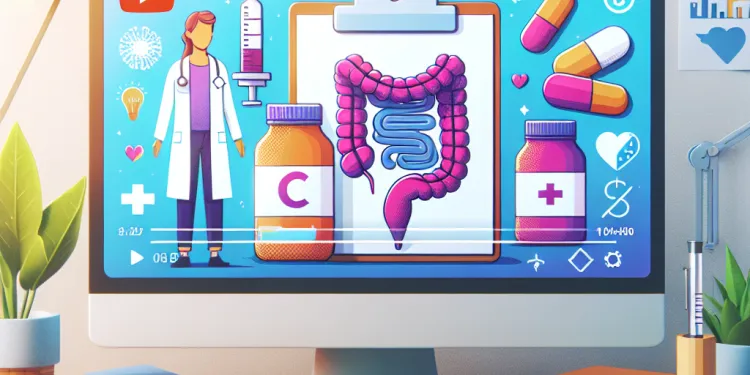
Find A Professional
More Items From Ergsy search
-

What types of nuts can cause allergies?
Relevance: 100%
-

Are nut oils safe for people with nut allergies?
Relevance: 89%
-

Can nut allergies be outgrown?
Relevance: 85%
-

Can tree nuts and peanuts cause cross-reactions?
Relevance: 85%
-

What are Nut Allergies?
Relevance: 79%
-

What is the difference between a nut allergy and intolerance?
Relevance: 74%
-

Can nut allergies develop later in life?
Relevance: 74%
-

What should I do if I think I have a nut allergy?
Relevance: 63%
-

How can nut allergies be managed?
Relevance: 62%
-

How can I prevent cross-contamination with nuts in the kitchen?
Relevance: 57%
-

What foods should I avoid if I have a nut allergy?
Relevance: 56%
-

Is there a cure for nut allergies?
Relevance: 56%
-

What are the symptoms of a nut allergy?
Relevance: 55%
-

How is a nut allergy diagnosed?
Relevance: 54%
-

Is it safe to eat foods labeled as 'may contain nuts'?
Relevance: 48%
-

What should I tell my family and friends about my nut allergy?
Relevance: 38%
-

How are food allergies managed in UK schools?
Relevance: 32%
-

What are Dairy Allergies?
Relevance: 32%
-

What if I have an egg allergy, can I still get the flu vaccine?
Relevance: 32%
-

Is epinephrine the only treatment for severe nut allergy reactions?
Relevance: 30%
-

Is it possible to be allergic to the sun?
Relevance: 26%
-

Dealing with Seasonal Allergies
Relevance: 23%
-

Are there any recent treatments or research developments for nut allergies?
Relevance: 21%
-

How are special dietary requirements catered for in school meals?
Relevance: 20%
-

What is the purpose of providing school meals in the UK?
Relevance: 18%
-

Do pets contribute to hay fever?
Relevance: 15%
-

Are there educational components to the school meal program?
Relevance: 15%
-

How can I reduce my exposure to pollen?
Relevance: 12%
-

What is included in a typical school meal in the UK?
Relevance: 12%
-

What foods can trigger nettle rash?
Relevance: 11%
-

Nutrition for Pregnancy: What to Eat
Relevance: 11%
-

How are school meals provided in the UK?
Relevance: 11%
-

Are school meals inspected for quality and standards?
Relevance: 10%
-

How can parents provide feedback on school meals?
Relevance: 10%
-

What dietary changes can help manage Crohn's disease?
Relevance: 9%
-

What treatments are available for Crohn's disease?
Relevance: 9%
-

The treatment approach for an eating disorder
Relevance: 9%
-

Is there a focus on healthy eating in UK school meals?
Relevance: 9%
-

Can diet affect ADHD symptoms?
Relevance: 9%
-

Who is responsible for providing school meals in the UK?
Relevance: 9%
Identifying a Nut Allergy
If you suspect you have a nut allergy, it is important to be aware of the common symptoms. These may include skin reactions such as hives or eczema, gastrointestinal issues such as nausea or vomiting, respiratory problems like sneezing or a runny nose, and in severe cases, anaphylaxis, which is a life-threatening reaction that requires immediate medical attention. Recognising these symptoms is the first step towards managing a nut allergy effectively.
Seek Medical Advice
Once you suspect a nut allergy, it is crucial to consult a healthcare professional. In the UK, you can start by making an appointment with your GP (General Practitioner). Your doctor may refer you to an allergy specialist for further testing, such as a skin prick test or a blood test, to confirm the allergy. Accurate diagnosis is key to establishing an appropriate management plan.
Avoidance and Management
The most effective way to manage a nut allergy is to avoid exposure to nuts. This includes reading food labels carefully, as nuts can be present in many products or may be processed in facilities that handle nuts. The UK's Food Standards Agency mandates that food labels must clearly state the presence of common allergens, including nuts. Informing friends, family, and coworkers about your allergy can also help avoid accidental exposure.
Be Prepared for Emergencies
If you have been diagnosed with a nut allergy, your doctor may prescribe an adrenaline auto-injector (such as an EpiPen) and train you on how to use it in case of an emergency. It is crucial to carry your auto-injector with you at all times and to ensure that those around you understand how to use it as well. Additionally, consider wearing a medical alert bracelet that identifies your allergy, which can be helpful in emergency situations.
Educate Yourself and Others
Increasing your awareness about nut allergies and educating those around you can significantly reduce risks. Attend allergy education sessions if available, and seek resources from organisations like Allergy UK or the Anaphylaxis Campaign. These organisations offer support and updated information on living with an allergy. Share your knowledge with your support network to ensure everyone is informed and prepared.
Monitor Symptoms and Follow Up
After diagnosis, it is important to keep track of your symptoms and any reactions. Regular follow-ups with your healthcare provider can ensure your management plan remains effective. If you experience any new symptoms or have reactions despite avoidance strategies, seek medical advice promptly. Nut allergies can change over time, and staying informed about your own condition is vital for long-term health and safety.
Finding Out if You Have a Nut Allergy
If you think you might be allergic to nuts, look for signs that your body doesn't like them. You might get itchy skin or rashes. Your tummy could feel upset, or you might throw up. You could sneeze a lot or get a runny nose. In really serious cases, it can make breathing difficult, which is very dangerous and means you need help from a doctor right away. Knowing these signs helps you take care of yourself.
Talk to a Doctor
If you think you have a nut allergy, you should see a doctor. In the UK, start by meeting your GP (your regular doctor). They might send you to an allergy expert. The expert can do special tests, like a small scratch on your skin or a blood test, to see if nuts are the problem. Knowing for sure helps you make a good plan to stay safe.
Stay Away from Nuts
The best way to stay safe from a nut allergy is to avoid nuts. Always check what is in your food. Nuts can be in many foods or places where food with nuts is made. In the UK, food labels must say if nuts are inside. Tell your friends, family, and people you work with about your allergy. This helps them help you avoid nuts.
Get Ready for Emergencies
If a doctor says you are allergic to nuts, they might give you a special medicine pen called an adrenaline auto-injector (like an EpiPen). Learn how to use it in case of an emergency. Always carry it with you, and teach others how it works too. Wearing a medical bracelet that says you have a nut allergy is a good idea. It can help others know what's wrong if you need help.
Learn and Share
It is good to learn about nut allergies and teach others too. Go to allergy classes if you can, and find help from groups like Allergy UK. They have lots of useful information. When everyone around you knows about your allergy, you stay safer.
Watch Your Symptoms
After finding out you have a nut allergy, keep track of how you feel. Visit your doctor regularly to make sure your allergy plan is working well. If you notice any new problems or have reactions to nuts, get medical help quickly. Nut allergies can change, so knowing your own body's reactions helps keep you healthy and safe.
Frequently Asked Questions
What are common symptoms of a nut allergy?
Common symptoms of a nut allergy include itching, hives, swelling, difficulty breathing, abdominal pain, and anaphylaxis in severe cases.
What should I do if I experience symptoms of a nut allergy?
If you experience symptoms of a nut allergy, seek medical attention immediately, especially if symptoms are severe.
How is a nut allergy diagnosed?
A nut allergy is diagnosed through a combination of your medical history, skin prick tests, blood tests, and an oral food challenge conducted by an allergist.
Can I self-diagnose a nut allergy?
It is not recommended to self-diagnose a nut allergy. Consult with a healthcare professional for an accurate diagnosis.
What is an oral food challenge?
An oral food challenge is a test where, under medical supervision, a patient eats small, increasing amounts of the suspected allergen to see if a reaction occurs.
How soon after eating nuts do allergy symptoms appear?
Symptoms can appear within minutes to a few hours after consuming nuts.
What is anaphylaxis?
Anaphylaxis is a severe, potentially life-threatening allergic reaction that can occur rapidly. It requires immediate emergency treatment.
What should I do if I have an anaphylactic reaction?
Use an epinephrine auto-injector if available and call emergency services immediately.
Can nut allergies be cured?
Currently, there is no cure for nut allergies, but they can be managed by avoiding nuts and carrying emergency medication.
Can you outgrow a nut allergy?
Some people, especially young children, may outgrow certain nut allergies, though peanut allergy is less likely to be outgrown.
Should I avoid all nuts if I have a nut allergy?
It depends on your specific allergy. Some people are allergic to all nuts, while others may only be allergic to specific types. Consult your allergist.
What are tree nuts?
Tree nuts grow on trees and include almonds, cashews, walnuts, pecans, and hazelnuts, among others.
Are peanuts considered a nut?
Peanuts are legumes, not true nuts, but many people with peanut allergies also react to tree nuts.
How can I avoid cross-contamination with nuts?
Read labels carefully, avoid foods processed in facilities that handle nuts, and ask about food preparation methods when dining out.
Can cooking destroy nut allergens?
Cooking does not destroy nut allergens, so avoiding nuts altogether is necessary if you have an allergy.
What is the role of an allergist in managing nut allergies?
An allergist can diagnose your allergy, provide management strategies, prescribe medications, and offer guidance on allergy safety.
Can nut allergies develop later in life?
Yes, nut allergies can develop at any age, although they are most common in children.
Are nut-free products safe for someone with a nut allergy?
Nut-free products can be safe, but it's essential to ensure there is no cross-contamination. Always read labels and verify with manufacturers.
Should I carry an epinephrine auto-injector if I have a nut allergy?
Yes, if prescribed, carry an epinephrine auto-injector at all times in case of accidental exposure.
Can I travel safely with a nut allergy?
Yes, with careful planning. Inform airlines of your allergy, carry safe snacks, and always have your medication with you.
What happens if you are allergic to nuts?
If you have a nut allergy, your body reacts badly to nuts.
Here are some things that might happen:
- Your skin might get itchy or red.
- Your face, lips, or throat might swell up.
- You might feel sick in your tummy.
- You might cough, sneeze, or find it hard to breathe.
If you think you have a nut allergy, talk to a doctor.
Tools like pictures or videos can help you understand better.
If you are allergic to nuts, you might have some of these problems:
- Itchy skin
- Red and bumpy skin (like hives)
- Swelling
- Hard to breathe
- Tummy hurts
- Very bad reaction called anaphylaxis (you need help fast!)
Sometimes, it can help to use picture cards to show how you feel, or a friend can help you say the words.
What to Do if You Feel Sick from Nuts
If you feel sick from eating nuts, tell someone. You might feel itchy, get a rash, or find it hard to breathe. These are signs of a nut allergy. It is important to get help quickly. Talk to an adult or a doctor right away.
You can use helpful tools like:
- A note in your bag that says you have a nut allergy.
- A special bracelet that tells people you have a nut allergy.
- A phone app to remind you to tell adults about your allergy.
If you feel sick after eating nuts, tell an adult and see a doctor right away. It's very important if you feel really unwell.
Some things can help:
- Keep a medicine like an EpiPen with you.
- Always tell others you have a nut allergy.
- Stay away from food that can have nuts in it.
How do doctors know if you have a nut allergy?
Doctors can tell if someone has a nut allergy by doing special tests. Here are some ways they find out:
- Ask Questions: The doctor will ask about your symptoms and what happens when you eat nuts.
- Skin Test: The doctor might put a tiny bit of nut on your skin to see if it gets red or itchy.
- Blood Test: A small sample of your blood can be tested to check for allergies.
Here are some things you can do to help understand allergies:
- Use picture books that explain allergies in simple ways.
- Watch videos made for kids that teach about allergies.
- Talk to someone you trust, like a teacher or family member, about how you feel and ask questions.
Doctors find out if you have a nut allergy by doing different tests. They will:
- Ask about your health and any problems you have had.
- Do a skin prick test to see how your skin reacts.
- Take a small blood sample to test it.
- Ask you to eat a little bit of nuts in a special place to check for allergies.
An allergist, who is a special doctor for allergies, does these tests.
If you find reading hard, you might find audiobooks or text-to-speech apps helpful.
Can I figure out if I have a nut allergy on my own?
Don't try to find out if you are allergic to nuts by yourself. Talk to a doctor to make sure.
What is an oral food challenge?
An oral food challenge is a test. It helps doctors find out if a person is allergic to a food.
If someone thinks they have a food allergy, the doctor will give them a small amount of that food during the test.
The doctor watches carefully to see if the person has an allergic reaction.
This test helps to make sure if the food is safe to eat or not.
To help understand better, you can:
- Ask the doctor any questions you have.
- Bring a friend or family member to help listen.
- Use pictures or drawings to make things clear.
An oral food challenge is a test. A doctor watches while a person eats small amounts of a food. Then they eat a bit more. This helps to check if the person is allergic to that food.
When do signs of a nut allergy show up?
After eating nuts, how fast do you feel bad?
- Signs can start in minutes.
- Sometimes they start after a few hours.
If you think you might have a nut allergy, talk to a doctor.
Helpful tip: Carrying a small notebook to write down what you eat can help you track allergies.
After eating nuts, you might feel sick quickly or in a little while.
What is anaphylaxis?
Anaphylaxis is a very strong allergic reaction.
This means your body reacts in a big way to something like peanuts or a bee sting.
It can make it hard to breathe and might need quick help from a doctor.
If you have an allergy, carry a special pen called an EpiPen.
Telling adults, like teachers or parents, about your allergy can keep you safe.
Anaphylaxis is a strong allergic reaction. It can be very dangerous and happen quickly. If this happens, you need help from a doctor right away.
What to Do if You Have a Bad Allergic Reaction
If you have a really bad allergic reaction, follow these steps to stay safe:
- Use your EpiPen right away if you have one.
- Call for help by dialing 911 (or your emergency number).
- Tell someone you trust that you are having an allergic reaction.
Tools that can help:
- Keep an EpiPen with you if you know you have allergies.
- Wear a medical alert bracelet.
- Make an emergency plan with your doctor.
If you have an epinephrine pen, use it. Then call emergency help right away.
Can we make nut allergies go away?
Some people are allergic to nuts. This means they get sick if they eat nuts. Right now, there is no way to make nut allergies go away completely.
But doctors can help people feel better. They might try giving a small amount of nuts to get used to them slowly. This is called "allergy treatment."
If you have a nut allergy, always talk to a doctor. They can tell you what to do and how to stay safe. You can also use reading tools or apps to help you understand more about allergies.
Right now, there is no way to make nut allergies go away completely. But we can keep safe by staying away from nuts and having medicine ready in case of emergencies.
Can you stop having a nut allergy when you grow up?
Some people can stop having a nut allergy when they grow older. But many people have it for a long time.
If you have a nut allergy, talk to a doctor. They can help check if you still have it.
Tools like picture cards or simple videos can help you understand more about nut allergies.
Some people, like kids, might stop being allergic to some nuts when they grow up. But, most people who are allergic to peanuts stay allergic.
Is it safe to stay away from all nuts if I'm allergic?
If you have a nut allergy, it is important to be careful. Some people might be allergic to all nuts, while others might only be allergic to certain kinds.
Here are some tips to help you:
- Ask a doctor for advice. They can help you know which nuts to avoid.
- Read food labels carefully. This helps you check if a product has nuts.
- Carry medicine with you, like an EpiPen, if your doctor says you need it.
- Tell your friends and family about your allergy so they can help keep you safe.
Remember, knowing more helps keep you safe!
It depends on what you are allergic to. Some people are allergic to all nuts. Other people might only be allergic to some nuts. Talk to your allergist for help.
If reading or understanding is hard, you can use tools to help. You can try using audiobooks to listen instead of reading. Picture books or comics can also make reading easier. You can also ask someone you trust to read with you or explain things.
What are tree nuts?
Tree nuts are nuts that grow on trees.
Some examples of tree nuts are:
- Almonds
- Cashews
- Walnuts
- Pistachios
Tree nuts are a type of food.
They can be healthy and tasty.
If you find reading hard, you can:
- Ask someone to read it with you.
- Use a ruler or your finger to help follow the words.
- Break big words into smaller parts.
Tree nuts grow on trees. Some tree nuts are almonds, cashews, walnuts, pecans, and hazelnuts. There are others too.
Are peanuts really nuts?
Peanuts are not real nuts. They are a kind of food called legumes, like beans and peas.
If you want to know more, you can look at pictures or use videos. They can help you learn!
Peanuts are not real nuts. They are part of a group called legumes. But, many people who are allergic to peanuts can also be allergic to tree nuts.
How can I keep food safe from nuts?
Always look at food labels closely. Don't eat food made in places where they also use nuts. When you eat out, ask how the food is made.
Can cooking get rid of nut allergens?
Cooking means heating up food. Nut allergens are things in nuts that can make people sick.
When you cook nuts, it might not get rid of all the allergens. So, some people can still get sick after eating cooked nuts.
If you have trouble reading, ask someone to help you. Use a dictionary to understand new words. Pictures and videos can also help explain things.
Cooking won't get rid of nut allergens. If you are allergic to nuts, you should not eat them at all.
What does an allergist do to help with nut allergies?
An allergist is a doctor who knows a lot about allergies. They help people who are allergic to nuts.
Here is what an allergist can do:
- Test to find out if you are allergic to nuts.
- Teach you how to stay safe from nut allergies.
- Give you medicine to help if you have an allergic reaction.
- Help you understand what foods to avoid.
Using pictures or videos can help you understand more about nut allergies. You can also use apps to remind you to take your medicine.
An allergy doctor can find out what you are allergic to. They can help you manage it, give you medicine, and tell you how to stay safe with allergies.
Can you get a nut allergy when you are older?
Yes, people can get nut allergies when they are older, but this happens more often with kids.
Can someone with a nut allergy eat nut-free foods?
People with nut allergies need to be very careful. When food says it is "nut-free," it means it should not have any nuts. But it is always good to be extra safe.
Here are some tips:
- Read labels: Look carefully at the packaging. Does it say "nut-free"?
- Ask questions: If you are eating out or buying from a bakery, ask if they use nuts.
- Tell others: Let friends, family, and teachers know about the allergy.
- Use apps: Try using an app that helps check food labels for nuts.
Remember, staying safe is the most important thing!
Products without nuts can be safe. But you have to make sure they are not mixed with nuts by mistake. Always read the labels on packages and check with the people who make the products.
Should I have an epinephrine auto-injector if I am allergic to nuts?
If you are allergic to nuts, it is a good idea to carry an epinephrine auto-injector. This tool helps in emergencies if you eat nuts by mistake.
It can be helpful to:
- Ask a doctor about the auto-injector.
- Learn how to use it.
- Keep it with you all the time.
- Tell friends and family about your allergy and how to help.
Remember, carrying it can keep you safe.
Yes, if a doctor says you need it, always carry an epinephrine pen with you in case you have an allergic reaction.
Can I travel safely if I have a nut allergy?
Yes, you can if you plan well. Tell the airline about your allergy. Bring your own safe snacks. Always keep your medicine with you.
Useful Links
- Ergsy carfully checks the information in the videos we provide here.
- Videos shown by Youtube after a video has completed, have NOT been reviewed by ERGSY.
- To view, click the arrow in centre of video.
- Most of the videos you find here will have subtitles and/or closed captions available.
- You may need to turn these on, and choose your preferred language.
- Go to the video you'd like to watch.
- If closed captions (CC) are available, settings will be visible on the bottom right of the video player.
- To turn on Captions, click settings .
- To turn off Captions, click settings again.
More Items From Ergsy search
-

What types of nuts can cause allergies?
Relevance: 100%
-

Are nut oils safe for people with nut allergies?
Relevance: 89%
-

Can nut allergies be outgrown?
Relevance: 85%
-

Can tree nuts and peanuts cause cross-reactions?
Relevance: 85%
-

What are Nut Allergies?
Relevance: 79%
-

What is the difference between a nut allergy and intolerance?
Relevance: 74%
-

Can nut allergies develop later in life?
Relevance: 74%
-

What should I do if I think I have a nut allergy?
Relevance: 63%
-

How can nut allergies be managed?
Relevance: 62%
-

How can I prevent cross-contamination with nuts in the kitchen?
Relevance: 57%
-

What foods should I avoid if I have a nut allergy?
Relevance: 56%
-

Is there a cure for nut allergies?
Relevance: 56%
-

What are the symptoms of a nut allergy?
Relevance: 55%
-

How is a nut allergy diagnosed?
Relevance: 54%
-

Is it safe to eat foods labeled as 'may contain nuts'?
Relevance: 48%
-

What should I tell my family and friends about my nut allergy?
Relevance: 38%
-

How are food allergies managed in UK schools?
Relevance: 32%
-

What are Dairy Allergies?
Relevance: 32%
-

What if I have an egg allergy, can I still get the flu vaccine?
Relevance: 32%
-

Is epinephrine the only treatment for severe nut allergy reactions?
Relevance: 30%
-

Is it possible to be allergic to the sun?
Relevance: 26%
-

Dealing with Seasonal Allergies
Relevance: 23%
-

Are there any recent treatments or research developments for nut allergies?
Relevance: 21%
-

How are special dietary requirements catered for in school meals?
Relevance: 20%
-

What is the purpose of providing school meals in the UK?
Relevance: 18%
-

Do pets contribute to hay fever?
Relevance: 15%
-

Are there educational components to the school meal program?
Relevance: 15%
-

How can I reduce my exposure to pollen?
Relevance: 12%
-

What is included in a typical school meal in the UK?
Relevance: 12%
-

What foods can trigger nettle rash?
Relevance: 11%
-

Nutrition for Pregnancy: What to Eat
Relevance: 11%
-

How are school meals provided in the UK?
Relevance: 11%
-

Are school meals inspected for quality and standards?
Relevance: 10%
-

How can parents provide feedback on school meals?
Relevance: 10%
-

What dietary changes can help manage Crohn's disease?
Relevance: 9%
-

What treatments are available for Crohn's disease?
Relevance: 9%
-

The treatment approach for an eating disorder
Relevance: 9%
-

Is there a focus on healthy eating in UK school meals?
Relevance: 9%
-

Can diet affect ADHD symptoms?
Relevance: 9%
-

Who is responsible for providing school meals in the UK?
Relevance: 9%